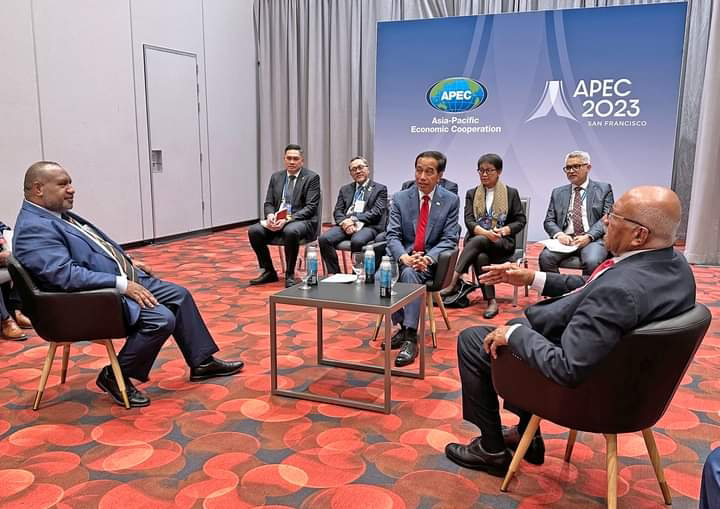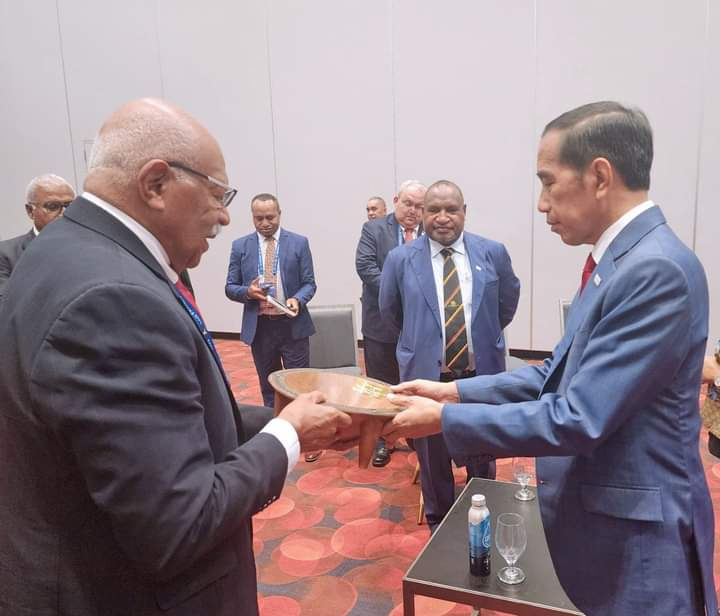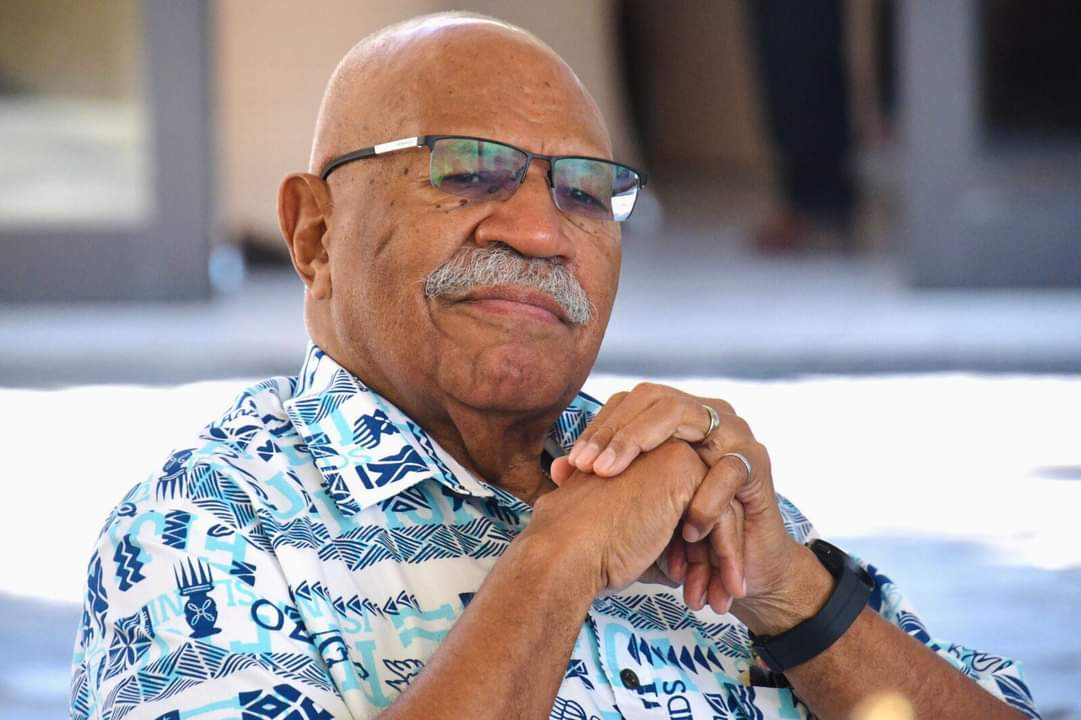Below is the speech that ULMWP Interim President Benny Wenda gave at Oxford Town Hall on December 1, 2023.
In the name of Yahweh, in the name of our ancestors, in the name of bones of suffering, and in the name of all generations to come, I would like to first say a minute’s silence for all the West Papuans, past and present, who have been killed in the course of the struggle. We mourn the ten Papuans who were massacred in February by the Indonesian military. We mourn the five teenagers murdered in Yahukimo in September, and the five civilians who were killed only days before that in Fakfak.
We also remember the brave fighters and heroes of the West Papuan struggle that we lost this year. I would like you to join me in a moment of silence for our flag raisers and all other West Papuans who have passed in 2023.
_______________________
December 1st 1961 is West Papua’s Independence Day.
On this day 62 years ago, the New Guinea Council raised the Morning Star across West Papua for the first time. A new nation was being born. If Indonesia had not invaded our land, West Papua would have become the first independent Melanesian state – before Vanuatu, the Solomons, Fiji, or Papua New Guinea.
Our flag raising ceremony in 1961 was recognised by Australia, the UK, France, and the Netherlands, our former coloniser. Oxford is the rightful place to raise this flag, because the UK witnessed our original flag raising
Though our independence was stolen from us by Indonesia and the big powers, we continue to recognise and cherish 1961 as a symbol of our nation. As enshrined in our constitution, the ULMWP has always recognised all previous declarations as vital and historic moments in our struggle. This does not just include 1961, but also the OPM Independence Declaration 1971, the fourteen star declaration of West Melanesia in 1988, the Papuan People’s Congress in 2000, and the Third West Papuan Congress in 2011.
There is now a new addition to this list of milestones: the first ever ULMWP Congress, which was successfully held inside West Papua in November. Over 5000 West Papuans gathered in Jayapura to choose their leaders. Every man and woman who attended the Congress risked their lives and their freedom to defend their constitution and take ownership of their struggle.
I give my congratulations and thanks to the Congress Committee, Papuan People’s Forum, and every West Papuan who organised this historic event, particularly the landowners of the Tabi region who hosted it. The spirit of Theys Eluay, who was from the Tabi region, was present at this Congress. Thank you to our military wings, we will continue to work together to achieve our goal of a peaceful self-determination referendum. As expressed in the Congress Resolutions, we acknowledge and give thanks to the KNPB and the Alliance of Papuan Students as important elements of our fight for self-determination. I acknowledge all our affiliated organisations and all independent self-determination groups, including women’s groups and Indonesian solidarity organisations.
I was greatly honoured to have been chosen as President of the ULMWP at the Congress. Together with Prime Minister Edison Waromi, our cabinet, and seven regional Executives, we will work together according to our constitution to achieve our freedom. Our roadmap is clear and our three agendas have been endorsed by the people: A) full membership of the MSG, 😎 a UN High Commissioner for Human Rights visit to West Papua, and C) a resolution on West Papua at the UN General Assembly.
We have our mandate given through the Congress resolutions – the first popular mandate a ULMWP leader has ever received. With this Congress, we place the West Papuan struggle directly in the hands of the people. We are implementing democracy before we have achieved independence.
As ULMWP President, I endorse all the Resolutions passed by Congress, and reaffirm the existence of the ULMWP Constitution, Cabinet, and Government structure. I also confirm that our offices in West Papua, UK, Papua New Guinea, Vanuatu, and Australia will continue to operate, with the help of our diplomatic support in those countries.
With our ULMWP government, our constitution, our cabinet and regional Executives, we are proving to the world that we are ready for independence. We are ready to govern our own affairs. We also have our Green State Vision, which was endorsed at our Congress, which will protect the rainforest that is currently being chopped and torn down by Indonesia.
This year has proven that West Papua has no future with Indonesia. The Indonesian military have steadily increased their military presence across our land. The effect of Indonesia’s military operations is to displace West Papuans and open the land to exploitation. According to Human Rights Defenders on the ground, over 77,000 people are still displaced, living in the forest or in refugee camps. When people are displaced, the military moves in, and Indonesia uses the opportunity to steal our resources. This is what is happening right now in Intan Jaya, with the Wabu Block gold mine.
As well as sadness, 2023 has also brought great progress for our movement. The pressure for a UN High Commissioner for Human Rights is growing and growing. Over 85 countries have called for the UN to be allowed access to West Papua, including the Pacific Islands Forum and the OACPS. This year, the Melanesian Spearhead Group released their own communique calling for the UN visit to happen by March 2024. Two Melanesian envoys, the Prime Ministers of Fiji and Papua New Guinea, have since been appointed to engage with Indonesia and find a solution.
On behalf of the West Papuan people, I want to give my thanks to all groups across the world who continue to advocate for our cause. To our affiliated solidarity groups in New Zealand, Australia, Vanuatu, Fiji, Micronesia, Polynesia, Europe and the US: thank you. I call on all our solidarity groups to respect and endorse the results of our Congress and our direct mandate from the people. The democratic right of the people of West Papua needs to be respected.
Thank you to the International Lawyers for West Papua and the International Parliamentarians for West Papua, and to our close friends in Catalonia and the Basque Country, and all our diplomatic allies. Thank you to UK Greens, Labour Party, Liberals and Conservatives, in our All-Party Parliamentary Group, for your consistent support. A special thank you to former Lord Mayor Craig Simons and Elise Benjamin, who under your leadership gave me the freedom of the City of Oxford. Thank you to the city of Oxford, who have always welcomed me and who raise the Morning Star flag every year. And thank you to the British government who allow me to freely lobby on behalf of my people.
Thank you to the people and government of Vanuatu, our Wantoks, who have always been our strongest supporters. Thank you to all religious leaders, and particularly the Pacific Council of Churches and the West Papua Council of Churches, for your constant support and prayers.
I offer my thanks to Prime Minister Rabuka of Fiji, Prime Minister Marape of Papua New Guinea, and to all Pacific and Melanesian leaders. The solidarity of our brothers and sisters in Melanesia is one of our strongest weapons. Without the support of our Melanesian family, our struggle cannot succeed.
Lastly, I want to thank everyone who contributes to our struggle through culture, particularly in the Pacific, whether you are a songwriter, an artist, or a rugby player. Indonesia bans our freedom song, but you help preserve our identity, our language, our culture. You are keeping alive the spirit of Arnold Ap, the cultural leader and musician who was murdered by Indonesia in 1984 just because he played West Papuan music and promoted West Papuan culture. While he was in prison before he was killed, he wrote these lyrics:
Yang kudamba yang kunanti, tiada lain hanya kebebasan – what I am longing for, what I am waiting for, nothing but freedom.
To all our supporters around the world, I ask you to continue to walk with us on our long road to freedom. Continue to be the voice of the voiceless people.
Finally, to all West Papuans, I ask that you defend your constitution and the ULMWP Provisional Government. This is your government, your constitution: the people have endorsed it, and the people can defend it. Do not bow down to any structure that is imposed from outside, or engage with Indonesian institutions. You have your own government, cabinet, and constitution, which has been mandated through the Congress. You can liberate yourselves and reclaim your sovereignty.
I call on every West Papua – whatever gender, tribe, age, or political affiliation, whether you are living in the cities, in the highlands, in prison, in exile, or as guerillas in the bush – to unite behind the ULMWP provisional government and our roadmap. We are one people, with one soul, one destiny. I am humbled to have been chosen to lead you, as we continue to work towards our freedom.
God bless West Papua. Papua Merdeka.
Benny Wenda
Interim President
United Liberation Movement for West Papua
























